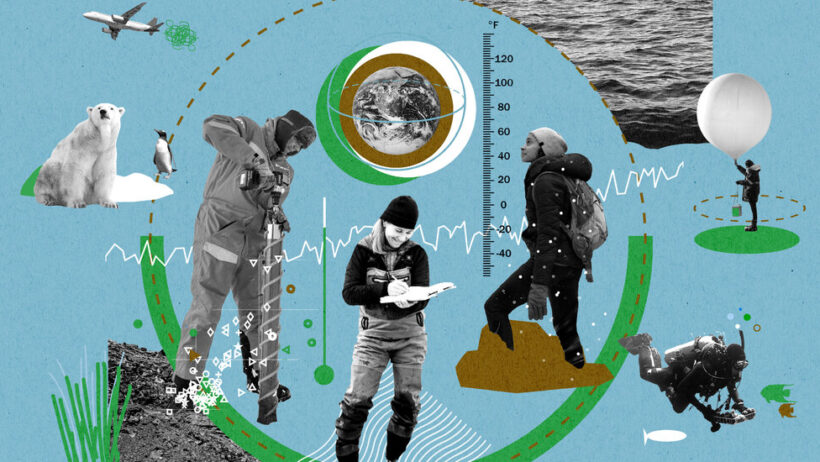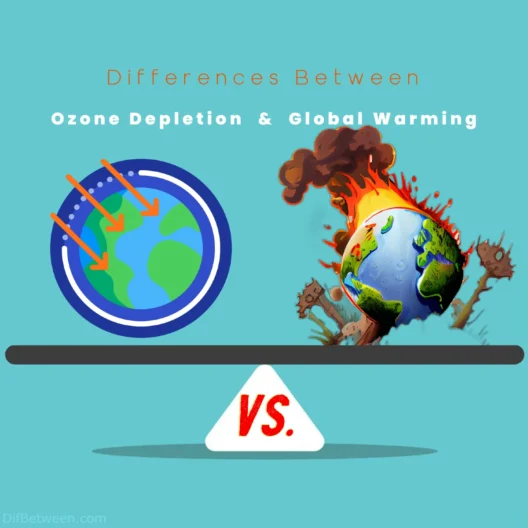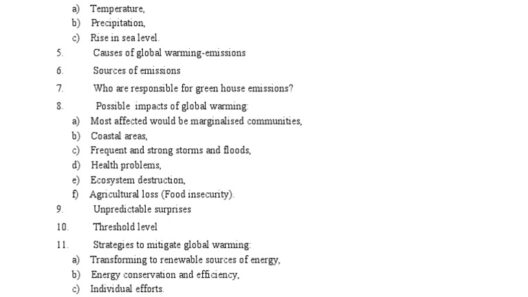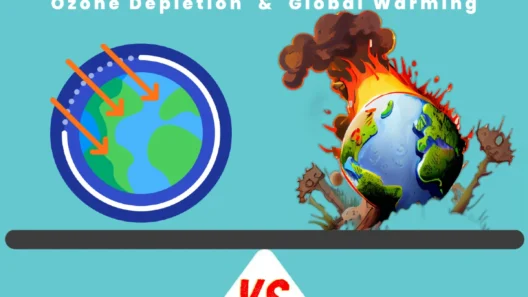As the planet warms, a pressing question emerges: Can your body adapt to global warming? This question is not merely rhetorical; it invites exploration into the adaptability of human physiology in the face of climate change. With rising temperatures, shifting weather patterns, and increasing frequency of extreme weather events, understanding the extent of our body’s resilience becomes paramount. Scientists delve into the intersection of biology, environmental science, and the future of human health, embarking on an intriguing inquiry: How well-equipped are we to cope with the repercussions of a warming world?
The human body is an extraordinary marvel, exhibiting a remarkable degree of adaptability to various environmental conditions. Evolution has gifted us with mechanisms to withstand and thrive in diverse climates—from the frigid Arctic tundra to the scorching deserts of the Sahara. However, the contemporary challenge presented by global warming introduces a cocktail of stressors that are unprecedented in speed and magnitude.
So, what happens when our thermal limits are tested? Physiologically, our bodies rely on a delicate balance of homeostasis to function optimally. This term refers to the stability of our internal environment, including temperature regulation. When exposed to elevated temperatures, various physiological responses kick in. Increased perspiration, alterations in metabolic activity, and modifications in blood flow are but a few adaptive responses intended to maintain equilibrium.
However, adaptation is not uniform across populations. Individual factors such as age, pre-existing health conditions, and genetic predispositions play a pivotal role in determining one’s ability to cope with heat stress. For instance, older adults, infants, and those with chronic illnesses are at heightened risk for heat-related complications. A playful question emerges: How adaptable are we? Recent studies reveal that while some populations may gradually acclimatize to warmer temperatures through behavioral and physiological adaptations, others may find these adjustments insufficient.
Consider the phenomenon of heat acclimatization, a process where the body becomes accustomed to heat stress over time. This adaptation includes increased plasma volume and improved cardiovascular responses. Yet, the speed at which global temperatures increase may outpace our evolutionary adaptations. The stark reality is that while our ancestors often had centuries to adapt to gradual climatic shifts, modern humans are confronted with a surge in temperature change over mere decades.
Moreover, climate change does not solely manifest as rising temperatures. It encompasses a spectrum of alterations, including intensified humidity, alterations in precipitation patterns, and increased frequency of extreme weather events. Each of these factors compounds the risks associated with heat exposure. For instance, high humidity levels hinder the body’s ability to cool down through evaporation, amplifying heat stress and leading to potential heat-related illnesses such as heat exhaustion and heat stroke.
Thus, the multifaceted nature of climate change poses a noteworthy challenge. In addition to temperature and humidity, consider the quality of the air we breathe. Elevated temperatures can exacerbate air pollution, leading to a rise in respiratory diseases and cardiovascular issues. Individuals with underlying health conditions may face increased morbidity, presenting a significant public health dilemma. Would our bodies be capable of adapting to lower air quality amidst rising temperatures? The answer to this query is laden with uncertainty.
As we scrutinize our biological responses, the interplay between climate change and mental health surfaces as another layer of complexity. Prolonged exposure to heat and climate-related disturbances is linked to psychological stress, anxiety, and exacerbation of pre-existing mental health issues. Societal factors, including displacement from natural disasters and economic instability caused by climate change, further weigh on mental well-being. Herein lies another playful challenge: Can our minds adapt alongside our bodies in navigating the psychological landscape of a warming world?
The socio-economic aspects of climate change cannot be overlooked. Vulnerable populations—those with limited access to healthcare, air conditioning, or safe housing—face the most daunting battles. The disparities in resources often exacerbate the adaptive capabilities of different communities, creating a multifaceted crisis. This reality poses a critical ethical question: How do we ensure equitable adaptation strategies that empower the most susceptible groups?
In addressing these challenges, the role of technology and innovation emerges. Advances in science present potential avenues for enhancing human resilience to climate change. From developing heat-resistant crops to implementing intelligent urban design that mitigates heat absorption, the synergy between technology and environmental science may play a pivotal role in adaptation. Moreover, public health initiatives focused on education and awareness can enhance community resilience and preparedness in the face of rising temperatures.
Ultimately, we must confront the complexities posed by global warming with a collaborative spirit. Adaptation is not solely an individual endeavor but a collective responsibility that requires coordinated efforts across sectors. Governments, public health agencies, and communities must unite to implement proactive strategies. These strategies could encompass improved urban planning, investments in green technology, and enhancements in public health infrastructure to support vulnerable populations effectively.
In conclusion, the question of whether our bodies can adapt to global warming encompasses a vast array of physiological, psychological, and social dimensions. While human adaptability is a testament to our resilience, the challenges posed by climate change may exceed our biological limits. As we venture further into an uncertain future, it becomes increasingly clear: collective action is not merely beneficial; it is imperative. Igniting a dialogue on climate adaptation can guide us toward solutions that embrace resilience not only for our bodies but for our collective existence on this planet.








